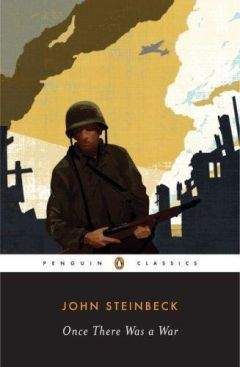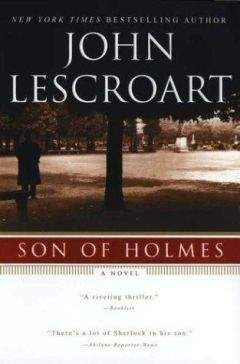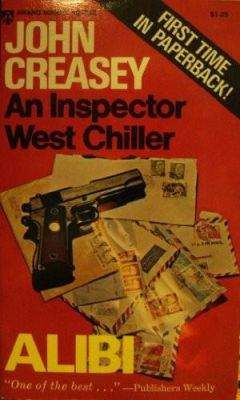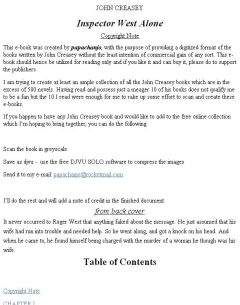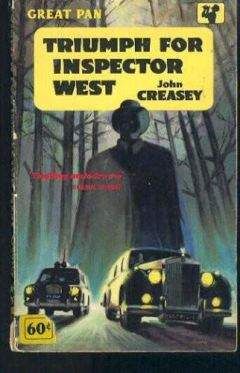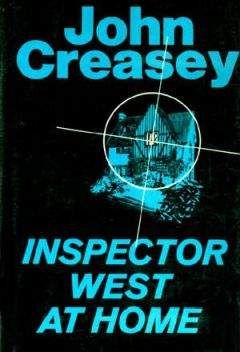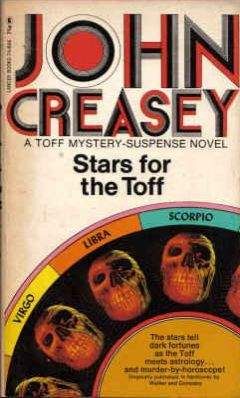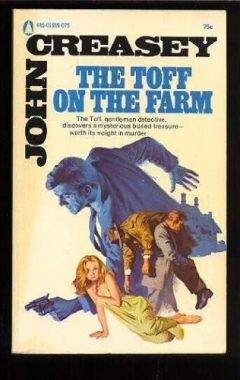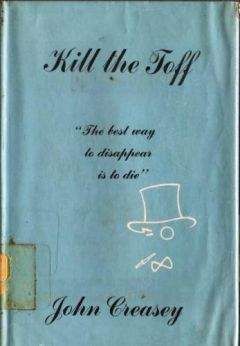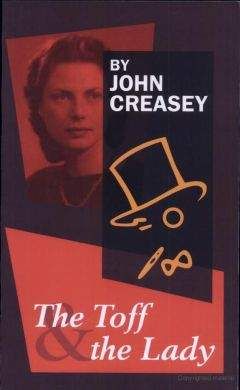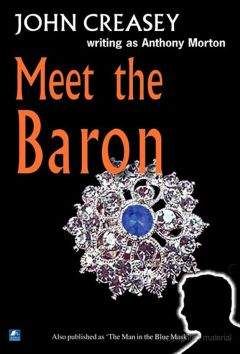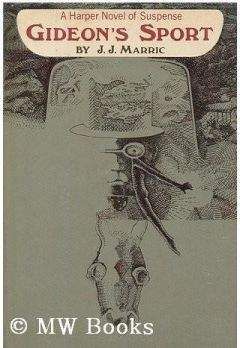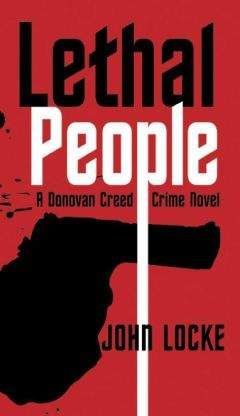John Creasey - Send Superintendent West

Скачивание начинается... Если скачивание не началось автоматически, пожалуйста нажмите на эту ссылку.
Жалоба
Напишите нам, и мы в срочном порядке примем меры.
Описание книги "Send Superintendent West"
Описание и краткое содержание "Send Superintendent West" читать бесплатно онлайн.
“If it comes to killing,” the Englishman said, “I’ll start Don’t be a fool, Shawn. I can tell you where to find Ricky, and I promise you he’s not hurt. I had a message about him two hours ago.”
“Where is he?”
“Back in the States.”
Shawn’s breath hissed. “Whereabouts in the States?”
“You needn’t know where he’s been, all you want is to make sure that he comes back. To you — not to England. It was a mistake to bring him over here, Shawn. It was a mistake to come here at all. Go back home and wait, and he will be sent to you. The only thing he won’t have is — this.”
Roger wished he could see, but dared not go farther towards the room. Shawn was standing quite still. Gissing’s legs moved, as if he were dragging himself along the carpet, farther from the giant. Then his feet disappeared, and a hand showed, palm upwards for a moment. The finger ends were covered with a thin adhesive tape; to guard against leaving fingerprints.
A scuffle of movement told of Gissing getting up.
“Catch,” he said.
“Shawn’s right hand moved, clutched in the air and closed round something which Gissing had thrown.
“That’s his,” said Gissing. “The gold identity tag his mother had made for him to wear round his neck. He was asleep when it was taken off, and he doesn’t know it’s missing. See the mark in the corner? Where it dropped the first day he had it and carried it round in his hand? Remember that?”
Shawn didn’t speak; Roger pictured his chest heaving.
“And I tell you he is perfectly all right,” insisted Gissing. “All you have to do is go home, and take his mother with you. Then Ricky will be sent to you. No one will get hurt, you and your wife will be happy again.”
“She’s happy right now,” Shawn said. The words came out in slow succession.
Gissing laughed; and as the sound came Roger knew that it was a mistake. Shawn’s shoulders heaved as he flung himself forward. It happened too swiftly for Roger to do a thing. He waited for the roar of the shot, and actually moved forward, gun in hand, in readiness for an attempt to stop Gissing shooting again.
No shot came. Almost in the same moment that Shawn staggered backwards, Roger side-stepped out of sight. He saw Shawn’s head on the ground, near the door, and pressed further back, but didn’t think that Gissing would come any nearer. Shawn was breathing like a man with asthma; his head vanished as he struggled to his feet.
“I don’t want to kill you,” Gissing said evenly. “But if you do that again, I will. Go and sit in that chair.”
There was silence.
“Go and sit down, you great hulking fool,” Gissing rapped out. “Sit down!”
There was a sound of movement, and the creaking, as of the man’s bulk being lowered into a chair. Roger moved again so that he could just see inside the room. He saw Shawn’s legs and feet, and Gissing standing sideways to the door. Gissing wasn’t likely to look round, he was watching Shawn as he would a maddened tiger.
“I’ve told you how to get the boy back. I’ve made it easy for you. I’ve got two tickets for you on a jet leaving London Airport early tomorrow morning. You’re going on that “plane, Shawn. If you don’t —” He stopped.
Shawn didn’t speak, but the question must have been in his eyes. It seemed to Roger that Gissing revelled in this, relished the moment when he could hurt, by the pause, by the threat not yet shaped with words.
Still Shawn didn’t speak.
“If you don’t,” Gissing said, “I’ll give you tickets for another “plane, in four days’ time. The boy’s right ear will be in the same envelope.”
Roger heard a horrible retching sound, as if dredged up from the depths of Shawn’s heart
Gissing waited for seconds which seemed like minutes, then moved a little nearer his victim, still covering him with his gun. Roger was holding his breath, as if resisting the brutality in Gissing’s threat and the inevitability of what would happen if Shawn did not obey. This had been planned to the last detail, and there could be no way out while Gissing remained free to give his orders.
Then Gissing said briskly, coldly: “That’s all you have to do, Shawn. Leave now, tell no one where you’ve been or what you’re going to do. Take your wife to London Airport on time. Here are the tickets.” He drew an envelope from his pocket and tossed it on to Shawn’s lap.
As Shawn took it, his right hand appeared for an instant.
Gissing waited again; he used silence to twist the knife in the wound, to make the hurt lasting, unforgettable. Roger hadn’t seen him clearly, knew him more from the deceptive softness of his voice than from his appearance; and from what he had said and how he had said it. In his way Gissing was as much a giant as Shawn. Lacking the larger man’s physical strength, his was the strength of the utterly unscrupulous. This man mattered in the way that evil mattered. He knew exactly what he wanted, rode roughshod over everything to get it. Shawn might believe that once he was back in the States all would be well. Not likely. Any man but Shawn, any man not screwed up until his nerves screamed at him, would know that after the first demand would come the second; after the second, the third.
For the first time, Roger felt sorry for Shawn.
Watching the two men, Roger’s entire attention had gradually been riveted on what he was seeing, what he was hearing, moment by moment. All thought had been numbed — and thought was only just beginning to come back. What next? He could stop Gissing now; he could stop Shawn too. While they were unaware of his presence they would be easy victims. Ought he to stop Gissing? After the first demand, the second. There was no way of being sure that Gissing was the only man who mattered; that if Gissing were caught it would be easy to trace the boy. It might be harder. Gissing might lead to the boy; so Gissing could serve a purpose if he were free.
There was more. Behind the kidnapping and the need for finding the boy, there was the work that Shawn was doing.
Reason said that Gissing might be one of many; at least of several. So ought he to let Gissing go as a sprat to catch a mackerel which might not exist. He had plenty of time to leave the house, walk up the private road and give the waiting police a description of Gissing’s car. From the moment a warning went out, radio would trail him to his journey’s end. Gissing couldn’t escape the net once it was drawn around him. And there were only a hundred yards or so between Roger and the first pull at the net Police forces in Great Britain could be alerted in a matter of minutes. France, the Low Countries, Eire, Northern Ireland — they would all co-operate.
Roger could see Marino again, give him his report, and leave him to handle Shawn. That wasn’t his business, Shawn didn’t matter in his investigations except where he got in the way.
Gissing said at last: “You’d better have that drink.”
Once again Roger backed into the dining-room. Footsteps fell soft on the thick carpet. Gissing passed the door but didn’t appear to glance towards it. He was a yard or two away when warning shouted in Roger’s ear like a strident voice. Gissing wouldn’t leave Shawn alone, not now, not knowing what Shawn might do. Gissing must realize that the man wasn’t really sane; only in an emergency would he leave him and getting ice for a drink wasn’t an emergency. Roger backed further into the room, gun covering the door, left hand behind him, stretched out for the table.
He saw a swift-moving shadow; and the light went on.
Gissing, gun in one hand, the other hand on the light switch, stood in the doorway. In that split second, Roger saw the man vividly, recognized the pale face, the dark eyes, the narrow chin — described by the Cornish sergeant. In the same split second he squeezed the trigger, aiming at Gissing’s gun. The flash and the roar of the shot were simultaneous; he expected answering flame from Gissing’s gun, had time to know it didn’t come but none to see whether Gissing fell.
A weight crashed on to the back of his head. Pain first and then blackness swallowed him.
• • •
Pain and blackness were the first things Roger knew on waking, pain at the back of his head, and blackness, as if his eyes had been smeared with corrosive. He didn’t move, just lay where he was, not thinking of Gissing, of Shawn, of anyone; conscious only of the pain and the darkness. Neither eased, but gradually thoughts began to trickle into his mind; first a vague recollection of fear and danger and then of shooting, the fact that he had fired. Then he remembered Gissing, and that he had not seen Gissing shoot. It might have been a bullet that had hit him. No, the blow on the back of his head hadn’t been a bullet. Someone had been in the dining-room; someone had got in, while he had been listening to Shawn and Gissing, must have crept within a foot of him, and then waited.
The pain still wasn’t easing, but now it no longer obsessed him. He felt the carpet with his fingers; a carpet, not necessarily at “Rest”. Rest! He felt his mouth go taut, as if he were grinning in spite of himself. He pressed against the floor and began to reason as well as to remember. He must get up cautiously, if his hands and legs were free. That meant turning to one side, putting some weight on one arm, levering himself up. He moved his arms and legs, teeth gritting together against the new waves of pain. At least he wasn’t tied up. He eased slowly over on to his left side, put his right arm over, drew his right leg up. He knew he was taking a long time; knew, too, that if he tried to be too quick, he would collapse again and lose more precious minutes. He must get to a telephone.
He might be locked in the room —
One thing at a time.
He clenched his teeth again. He felt as if his head was raw, his neck torn. Jagged pain struck at him when he lowered his head, and he hadn’t the strength to move it up again quickly.
Go slow. Go slow.
Right hand against the floor, right knee over the left leg, right knee on the floor. Over, gradually, take the strain on right hand and knee. They were clawing at his head, ugly, jagged, ripping claws. And his head and face burned with a strange heat. He was getting up, he mustn’t fall back, once on his feet he would feel better.
Up — up — up!
He stood swaying. The waves of pain were like waves hurling themselves against a leaking boat, he couldn’t resist them, had to heel over.
He didn’t fall.
After a while he stood without swaying, his feet well apart He didn’t know where he was, what he was looking at, because of the darkness; and it was utter darkness. He stretched out his right hand, went forward slowly and was less conscious of the pain. His fingers touched a wall. He turned right, hand against the wall, and went forward a step at a time. He kicked against something, and felt cautiously; his fingers told him that some kind of cabinet was in his way. He felt round it, touched something light; a glass fell, tinkling as it broke on the carpet.
His right foot crushed glass into the carpet, and he heard it crunch.
He found the wall again, then touched a picture, felt it move and heard it scrape. It swung back and touched his hand. He explored beyond that and went on again, until he touched something else, smaller and shiny. He kept still for a moment, then felt it carefully with his fingertips, until he knew that he was touching an electric-light switch. He had only to press it down, and there would be light. He longed for and yet feared it, because of the way it would strike at his eyes. As he closed them, and pressed down, he felt a moment of panic, in case the light didn’t come on.
It came.
It was bright enough to show pale red through his eyelids, but not too fierce to hurt. He stood quite still, then gradually opened his eyes. It was a dim light, and still didn’t hurt; not enough to make him close his eyes again.
This was the dining-room; he was still at “Rest”.
But Shawn wasn’t and Gissing wasn’t; he could be sure of that.
Where was the telephone?
What was the time?
11
MAN WANTED
ROGER looked at his watch. It was twenty-five minutes past eleven. Shawn had arrived at ten o’clock, just as the clock had stopped chiming. Allow an hour, an hour more or less, for the time they had talked in the drawing-room. Gissing had at least twenty-five minutes’ start on him, perhaps three-quarters of an hour.
What of the watching police?
If they had known the others had left, they would have been here by now, so Gissing, Shawn, and his unknown assailant, had slipped them.
Roger opened the door and stepped into the square hall, then looked back into the dining-room; there was no telephone there. There wasn’t one in the hall. He put on the drawing-room light.
He gasped and jerked his head. Pain seared through it, rushed to his shoulders, his back, everywhere — the pain of movement following the shock.
Shawn was still here.
He lay back in the chair in which he had been sitting when Roger had seen his hand move for the tickets. He didn’t move. His mouth was open, and his lips were moving, no he wasn’t dead. Roger gave a sound that was almost a whistle; not dead, when he had expected him to be dead. Why? He didn’t try to answer. This wasn’t the time to think, he had one thing to do — call the Yard. The telephone was in a corner of the drawing-room, he remembered it now; a corner behind the door, near the window. As he edged towards it, he kept looking at the huge figure slumped in the chair. The telephone was a long way off. Ten feet. Eight feet. Movement was more difficult now, his head didn’t hurt so much, but it was swimming, and the room began to sway round him. He leaned against the wall, breathing hard, made himself stay there for some time before moving again.
Six feet. Four.
He lunged forward, grabbed the telephone, clutched it first time, and grinned, as if at an enemy he had fooled. Resting his shoulders against the wall, he raised the instrument to his ear, then put his right hand towards the dial. His finger seemed to be going round in circles. Must keep it steady. He dialled W, the first letter in Whitehall 1212, the most familiar number in his life, before he realized that there had been no dialling tone. He found a spurious energy, rattled the platform up and down, and tried again.
The telephone was dead.
“Ought to have known,” he said. The words sounded loud. “Wire cut” He looked at the instrument stupidly, closed his eyes, and fought another spasm of giddiness. When he opened them again he was looking straight at some bottles on a tray. Whisky — gin — soda. He wanted a drink, to pull himself together, nothing would do that like a drink, but — his head. Spirits would go straight to it, make the pain worse; it might knock him out. The bottles shone, straw-coloured, honey-coloured. The colour of clear honey. Where had he seen clear honey lately? Ah! Lissa’s eyes.
The bottles leered like wanton demons. He turned his back on them and on the figure of Shawn, but couldn’t get rid of the mental picture of the man, mouth drooping open, face looking ugly. Then he realized why, at the first glance, he had thought Shawn to be dead. The man’s eyes were hidden by their lids, and his life was in his eyes.
Подписывайтесь на наши страницы в социальных сетях.
Будьте в курсе последних книжных новинок, комментируйте, обсуждайте. Мы ждём Вас!
Похожие книги на "Send Superintendent West"
Книги похожие на "Send Superintendent West" читать онлайн или скачать бесплатно полные версии.
Мы рекомендуем Вам зарегистрироваться либо войти на сайт под своим именем.
Отзывы о "John Creasey - Send Superintendent West"
Отзывы читателей о книге "Send Superintendent West", комментарии и мнения людей о произведении.





